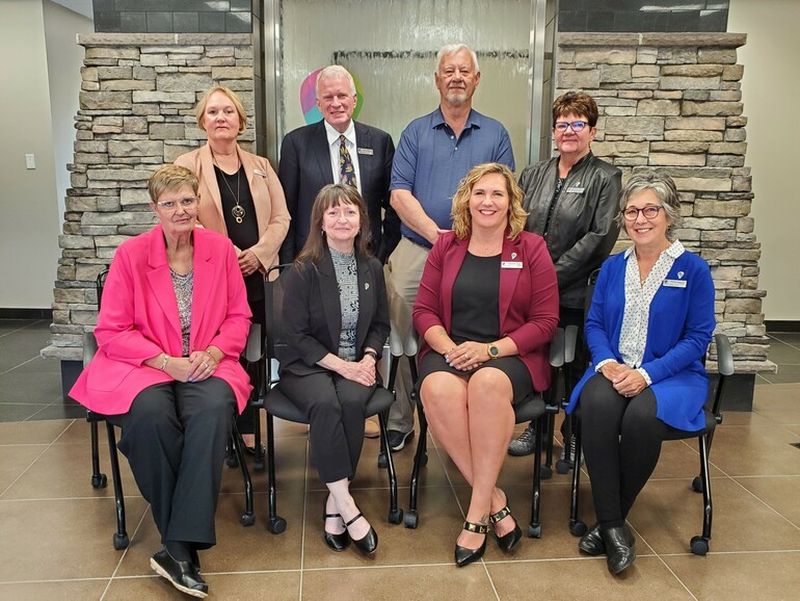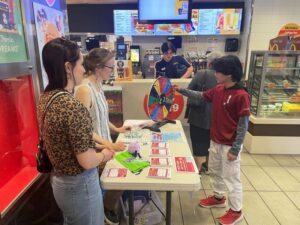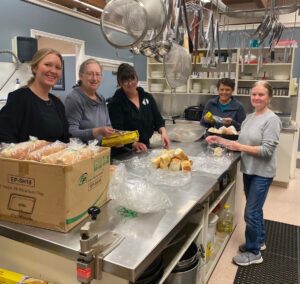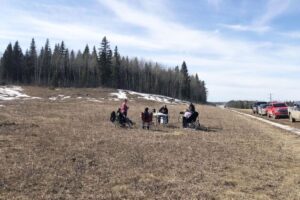By Serena Lapointe
The Trustees from Northern Gateway Public Schools kicked off the new year by approving their
2024/2025 Board Advocacy Plan, which outlines several key areas the board wants to focus on.
The public brochure, which details the advocacy plan, was released shortly after the approval
and points to four key issues: equitable funding for rural schools, meeting everyone’s needs,
learning for life and capital funding/transportation.
One of the concerns within the equitable funding category concerned CASA Classrooms, which
are spaces created for students who need specialized behavioural support. CASA, which
started in the late eighties, was the brainchild of a small group of parents, alongside a team of
psychiatrists, who linked up to provide high-quality care for children facing mental health issues.
At the time, services existed for children in government care who needed specialized support,
but those same supports were not as easily available for children living with their families. CASA
was the answer to that void and quickly expanded into central and northern Alberta. The
program focuses on wrap-around support for the child that gets the family involved.
When it was first named, CASA stood for a formal association name, but after it expanded to
include more mental health specialties, the acronym stayed the same to keep it simple. It now
stands for a phrase instead: “We strive for a community with Child and Adolescent Services for
All,” with child, adolescent, services and all making up CASA.
The issue for NGPS centers around CASA Classrooms, a program started in 2023. Students
who attend these classrooms receive both individual and group therapy, psychiatric care,
schooling and medication support. Mental health professionals, support staff and specialized
teachers care for students.
According to the CASA Mental Health website (www.casamentalhealth.org), students remain in
the program for half of the school year and receive transition support for the other half. In an
interview shared on the website; CASA Classrooms Senior Manager Lori Roe said the wrap-
around approach to support was meant to reduce barriers. “They do have to come into our
classroom in whatever school it is, but it’s something that works well for the kids, it also works
well for the families because they don’t have to go somewhere for services – they’re already
where their kids are anyways.”
As of the end of 2024, CASA Classrooms have been set up in Edmonton, Fort Saskatchewan,
Gibbons, Wetaskiwin, Sturgeon County, Red Deer and Medicine Hat, and each one has up to
twelve children in each classroom. “What we’re finding is that because it’s a smaller classroom
size, some of those kids who literally haven’t walked through a school door in two years are
coming because it’s less intimidating,” says Roe.
Though he sees the potential gain for students, NGPS Superintendent Kevin Bird explained the
program needs a rural touch. “You can’t be in a CASA Classroom if you have a diagnosis. So,
autism wouldn’t count, or any number of diagnoses,” he explained. CASA is focused on helping
students who have not responded to previous therapies as expected and whose symptoms
impact many aspects of their lives.
“They must have parental support, and they have to be in the grade range between four and
twelve. Our concern, of course, is that that particular model potentially works well in an urban
environment when you have a population to draw from. Rurally, we wouldn’t have enough
students in any one of our communities to have a financially efficient classroom,” he said.
“For us, we’d like to take the concept and ruralize it. I don’t know if that’s a real term, but it’s a
term we’re using,” chuckled Bird, in the January 21 NGPS Board of Trustees meeting. “We want
to ruralize it so that it fits better in somewhere like Northern Gateway or Grande Yellowhead or
Peace River, where we are having these conversations and design something using similar
principles that will actually function within our environment.”
NGPS’s newly released advocacy brochure states that “access to specialized supports for rural
students is challenging, costly, and often involves driving long distances to major centers. Local
service levels and “ruralization” of urban programs, such as CASA Classrooms that provide
specialized behavioural support, should be considered by the government when planning for
regionalization of health care.”
Other advocacy items for NGPS for the 2024/2025 school year include seeking tax rebates for
rural students attending urban post-secondary institutions and encouraging incentives for post-
secondary institutions to provide local campuses, decreasing the financial challenge for rural
students wanting to further their studies after graduation.
The brochure states that “mandating and funding local satellites of degree-granting institutions
would allow students to live in, or close to, their home communities, removing the financial
barriers currently limiting the training of this pool of desperately needed talent.”
Advocacy is also directed at encouraging the government to fund schools differently if they do
not accept students with high-cost special needs, pointing specifically to some Charter schools
and divisions that do not accept those types of students. “Divisions that accept all students
should receive targeted funding in recognition of the important support provided to these
children, youth, and families,” reads the brochure.
One of the last advocacy pieces, transportation, touched on increasing concerns for student
safety when drivers pass school buses inappropriately, putting students at significant risk.
NGPS is advocating for changes in the way drivers are handled. They want to see the
impounding of a vehicle as a strengthened penalty for those who pass a bus while its red lights
are flashing. They also want to see increased signage on secondary highways with stronger
messaging on what to do when the bus lights are flashing.








More Stories
Big dreams lead a talented local youth to Nashville
It’s Youth Week in Whitecourt until Friday
Bowls for Hope, a growing tradition